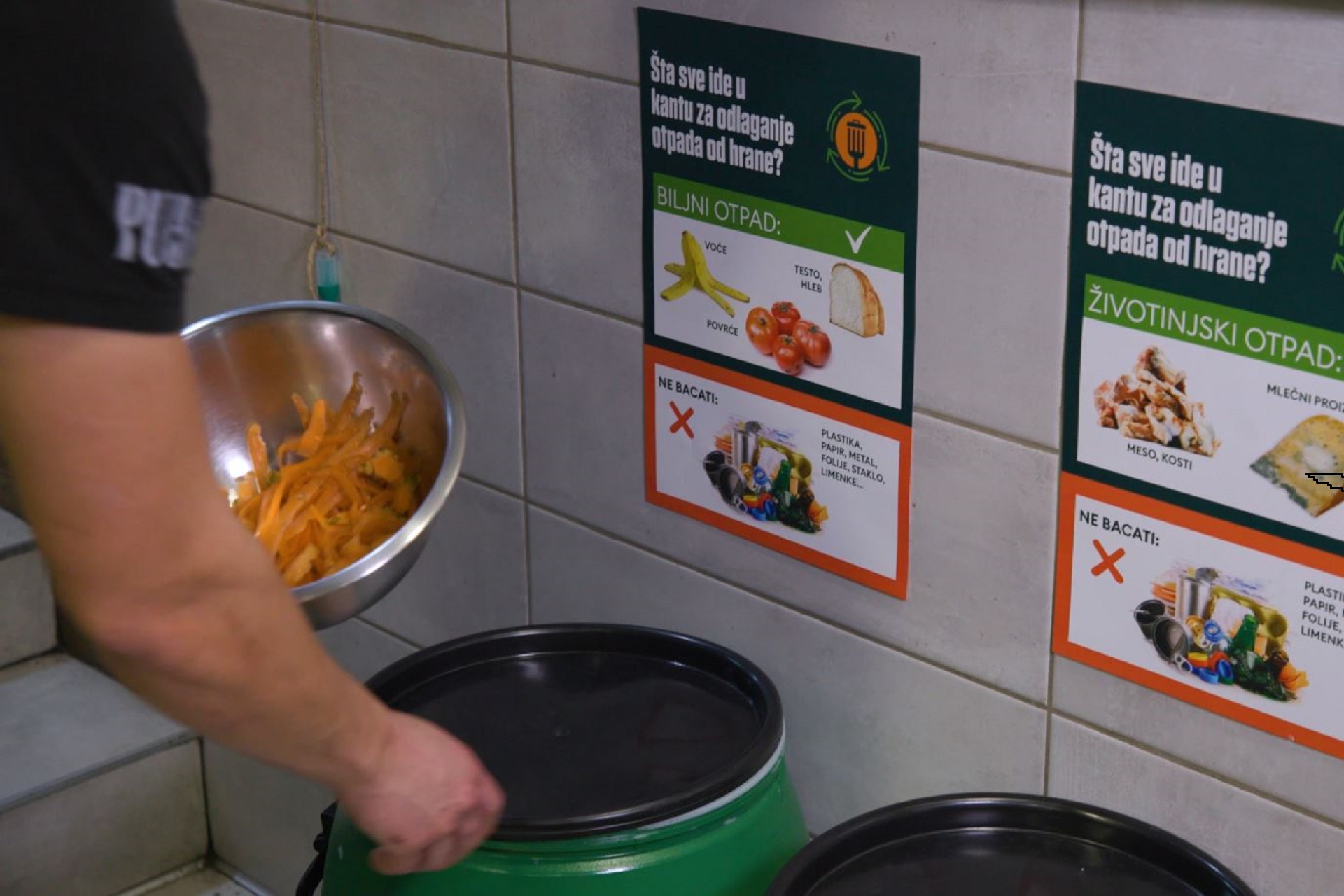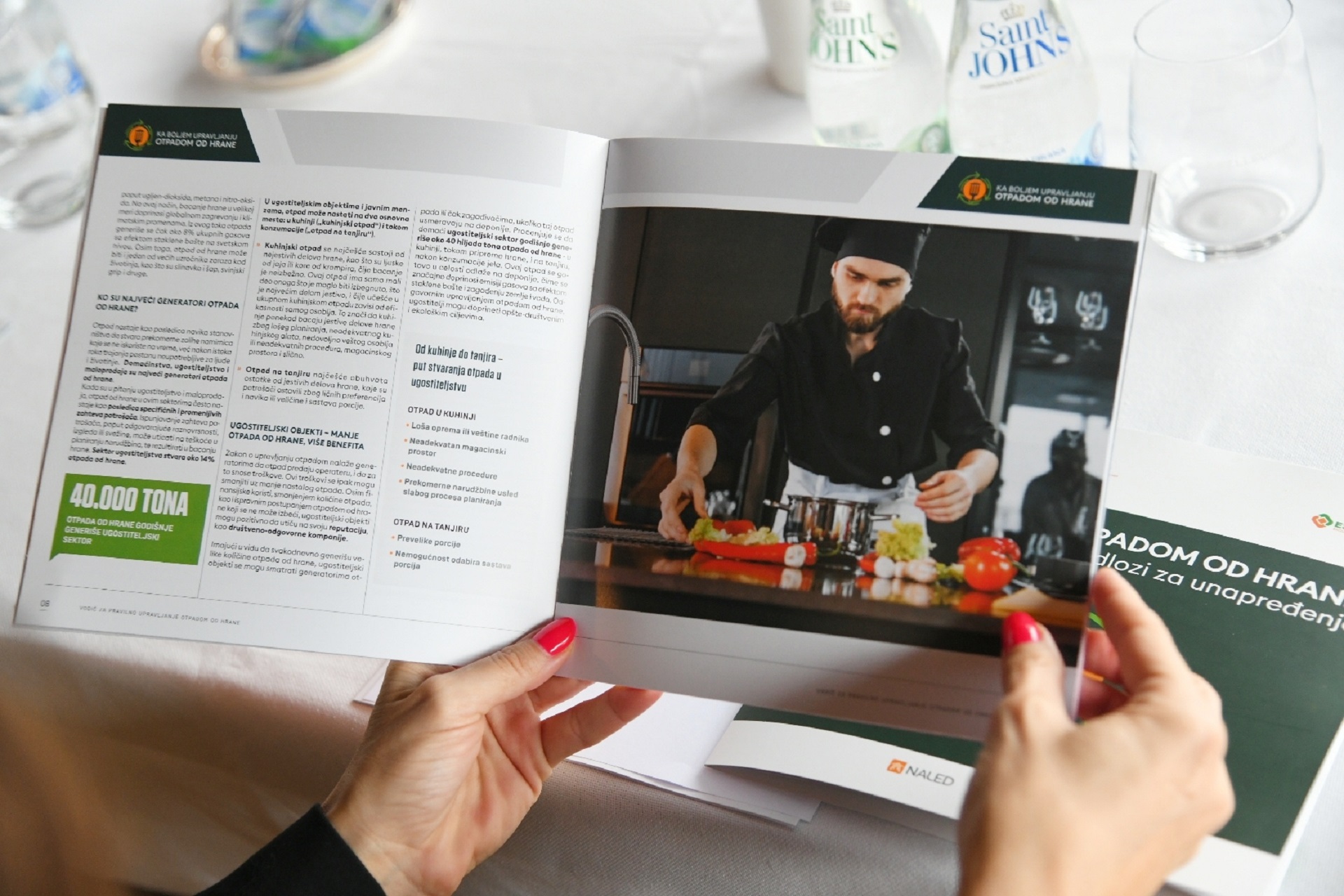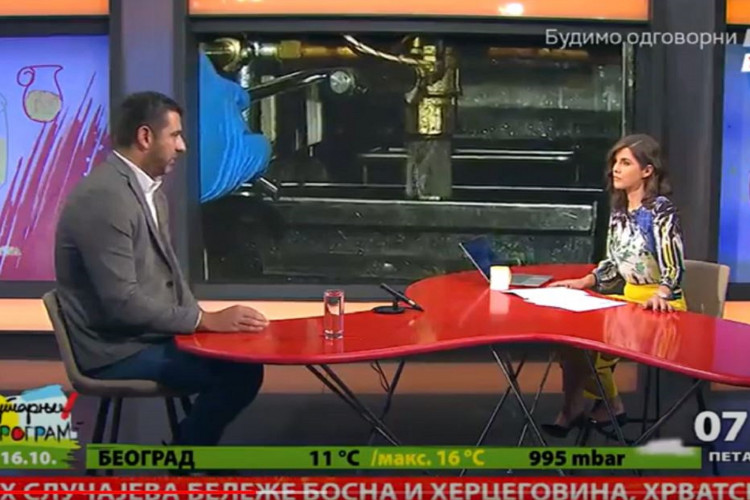The action of collecting 1,000 tons of food waste continues
The challenge of collecting 1,000 tons of food waste initiated by GIZ, NALED and Esotron continues until 1 April next year, with partners on the project "Towards Better Food Waste Management" inviting all restaurateurs, companies and public institutions from Belgrade and Novi Sad to join the action. Participants will have the opportunity to hand over kitchen waste to the operator at a promotional price and in this way support the reduction of carbon dioxide emissions by 750 tons.
Due to restrictive pandemic measures, which particularly affected the hospitality sector, collection was slowed down at one point, but despite that, the response was quite good and a third of the target amount has already been collected. Now all large kitchens have a chance to apply for participation in the next six months, and they can do so via email esotron@esotron.rs or by calling 021/621 66 27.
- Although the legal obligation of restaurants is to hand over all food waste to the operator, only 13% of caterers do that, and the unprofitability of treatment is one of the main reasons why 99% of leftovers from kitchens and "plates" still end up in landfills. Unlike waste edible oil, whose separation is paid for by the operator, in case of food, the restaurants have to pay for each kilogram, because it is not worthwhile for operators in the current conditions to take over the waste without compensation. That is why we have provided much lower prices than regular ones within this action, so that every kitchen can be included and contribute to the reduction of harmful gas emissions that occur when food ends up at the landfill - says the Head of the Environmental Protection Unit at NALED Slobodan Krstović.
According to him, each restaurant will receive two bins for separate disposal of plant-based and animal-based food waste, and the operators will regularly pick up waste and bring new, clean bins. "Caterers who have so far joined the challenge point out financial savings as one of the benefits, because proper disposal helped them understand which type of product is thrown away the most and which groceries they bought excessively," Krstović points out.
The project "Towards Better Food Waste Management in the Republic of Serbia" is implemented by NALED, in cooperation with EsoTron and with the financial support of the German Development Cooperation GIZ, and within the develoPPP program, funded by the German Federal Ministry for Economic Cooperation and Development.
A survey on knowledge of procedures showed that catering facilities produce an average of about eight kilograms of waste per day, while only a fifth of respondents are familiar with the procedures for resolving waste issues. For this reason, a Guide for Food Waste Management was developed within the project, offering practical advice for reducing portions, better procurement planning, proper separation, etc.
It is estimated that hotels, restaurants and public institutions in Serbia annually produce 40,000 tons of food waste, emitting about 28,000 tons of carbon dioxide into the atmosphere. When we think about the fact that one third of the world's annual food production (about 1.3 billion tons) goes to waste, we must keep in mind that all the electricity and water invested in its cultivation, harvesting, production, packaging and transportation – goes to waste as well. That is why one of the main messages of the project is that food waste is not only an environmental, but also an economic problem, because throwing away food also throws away a resource that can be used for energy production, animal feed or compost.



